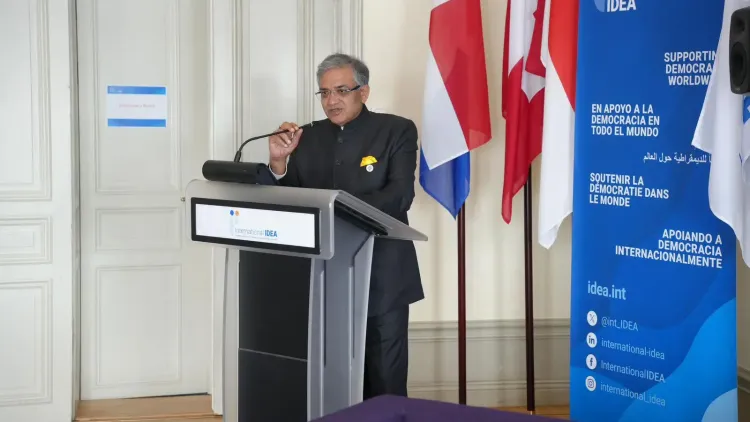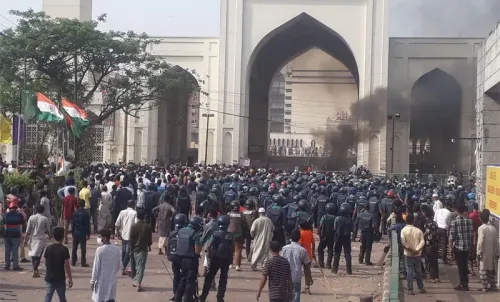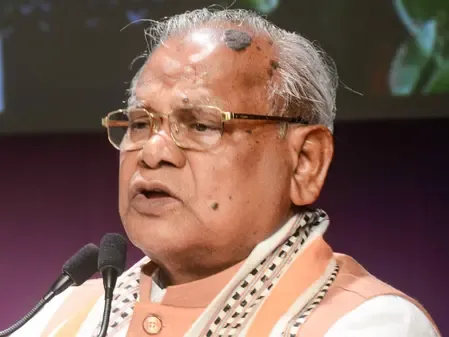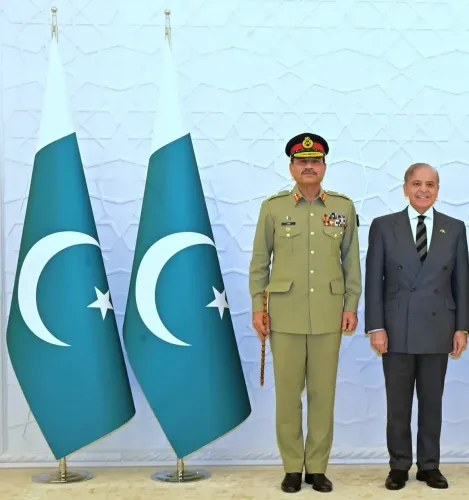How is Gyanesh Kumar Highlighting India's Electoral Integrity at the Stockholm Conference?

Synopsis
Key Takeaways
- India's electoral process is the largest globally.
- Commitment to electoral integrity is paramount.
- Inclusivity is a constitutional mandate.
- Robust electoral roll management enhances transparency.
- International collaboration fosters better electoral practices.
Stockholm, June 11 (NationPress) Gyanesh Kumar, the Chief Election Commissioner (CEC) of India, presented the keynote address at the Stockholm International Conference on Electoral Integrity on Tuesday. He highlighted India’s unmatched electoral scale, diversity, and unwavering dedication to democratic principles.
Addressing the global audience gathered by the International Institute for Democracy and Electoral Assistance (International IDEA), Kumar reiterated the Election Commission of India’s (ECI) commitment to conducting elections with integrity and enhancing global capacities for Election Management Bodies (EMBs).
More than 100 representatives from nearly 50 nations participated in the conference.
“Ensuring elections are conducted with the highest integrity showcases our national determination,” he stated, emphasizing ECI’s global leadership in electoral practices.
During his address, Kumar illustrated the immense scale of India’s electoral process, noting that elections occur under the scrutiny of political parties, candidates, observers, media, and law enforcement, ensuring transparency akin to concurrent audits at every step.
For general elections, the ECI enlists over 20 million personnel, including polling staff, police, observers, and political agents, making it the world's largest election management operation.
Reflecting on the evolution of India’s electoral system, Kumar highlighted the Commission’s adaptability to increasing complexities while upholding constitutional values.
“From 173 million electors in 1951-52 to 979 million in 2024, and from just 0.2 million polling stations then to over 1.05 million today, India’s electoral journey exemplifies institutional foresight and unmatched scale,” he noted.
He mentioned that the upcoming 2024 General Elections will include 743 political parties, comprising six national and 67 state parties, with over 20,000 candidates, facilitated by 6.2 million Electronic Voting Machines (EVMs).
Kumar characterized this as a reaffirmation of the ECI's ability to provide inclusive, efficient, and secure elections.
He also pointed out India's stringent approach to maintaining the electoral roll, which has been shared annually with all recognized political parties since 1960, allowing for claims, objections, and appeals. This statutory provision stands as one of the most transparent and robust voter list management systems globally.
Kumar further emphasized the inclusivity of India’s elections, catering to first-time voters, senior citizens above 85 years, persons with disabilities, third-gender electors, and those residing in remote or high-altitude areas like Tashigang in Himachal Pradesh.
He stressed that “leaving no voter behind” is a constitutional commitment, not just a logistical objective.
On the sidelines of the conference, the CEC engaged in bilateral discussions with counterparts from various countries including Mexico, Indonesia, Mongolia, South Africa, Switzerland, Moldova, Lithuania, Mauritius, Germany, Croatia, Ukraine, and the United Kingdom.
These discussions revolved around topics such as voter participation, electoral technologies, diaspora voting, and institutional collaboration.










